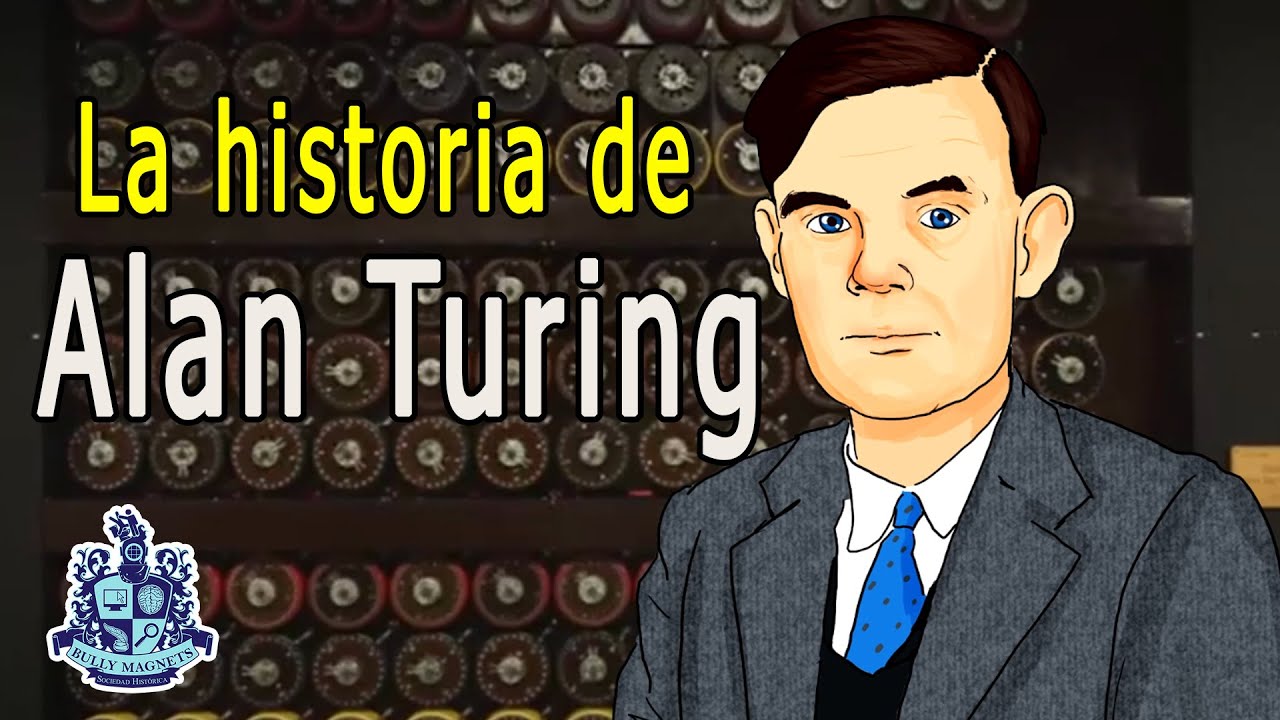Alan Turing - Celebrating the life of a genius
Summary
TLDRThis video script explores the life and achievements of Alan Turing, a brilliant mathematician and pioneer of computer science. Turing's work on the Entscheidungsproblem and his conceptualization of the Turing Machine laid the foundation for modern computing. During World War II, he played a crucial role in breaking the German Enigma code, significantly aiding the Allied war effort. Despite his extraordinary contributions, Turing faced persecution for his sexuality, leading to his tragic death. His legacy as a hero of cryptography and father of computer science continues to shape today's technological world.
Takeaways
- 🧮 Mathematics is the search for truth and the solution to problems.
- 🎉 2024 marks 100 years since the birth of Alan Turing, one of the greatest mathematical minds of the 20th century.
- 🕵️ Alan Turing is famous for breaking the German Enigma code during World War II, but his mathematical brilliance was already well-established before that.
- 🏫 Turing showed talent in math and science from a young age and earned a scholarship to King's College, Cambridge.
- 💡 In 1935, Turing developed the concept of the 'Turing machine', a hypothetical device that became foundational to computer science.
- 🔐 Turing played a key role in breaking the Enigma code, which had millions of possible settings, by designing the 'bombe' machine with Gordon Welchman.
- ⚙️ Turing's work in cryptography significantly contributed to the Allied war effort, shortening World War II by two years and saving countless lives.
- 🏆 After the war, Turing made major contributions to computing and biology, laying the foundations of modern computer technology and AI.
- 😔 Despite his achievements, Turing was persecuted for being gay and forced to undergo hormone treatment, leading to his tragic death by suicide in 1954.
- 🖥️ Turing's legacy as the father of computer science endures, and in 2009, the British government issued a public apology for the way he was treated.
Q & A
Why is the year significant for mathematicians?
-The year is significant for mathematicians because it marks the 100th anniversary of the birth of Alan Turing, one of the greatest mathematical minds of the 20th century.
What was Alan Turing's contribution to World War II?
-Alan Turing contributed significantly to World War II by breaking the German Enigma code, which allowed the Allies to decipher secret messages and gain a strategic advantage.
What was Turing's academic background?
-Turing was a student at King's College Cambridge, where he studied mathematics and developed his ideas on the Entscheidungsproblem, or decision problem.
What was the Entscheidungsproblem?
-The Entscheidungsproblem was a mathematical challenge posed by David Hilbert, asking whether there was a general algorithm to determine whether a given mathematical statement could be proven true or false.
What is the Turing machine?
-The Turing machine is a hypothetical device conceived by Turing that reads and manipulates symbols on a strip of tape according to a set of rules. It is considered one of the foundational concepts of computer science.
How did Turing's work on the Turing machine impact computer science?
-Turing's work on the Turing machine provided a theoretical framework for computation and laid the groundwork for the development of modern computers.
What was the Bombe machine and how did it help in breaking the Enigma code?
-The Bombe machine was a device designed by Turing and Gordon Welchman to automate the process of breaking the Enigma code. It used a series of logical deductions and the principle of contradiction to find the correct settings of the Enigma machine.
What recognition did Turing receive for his work during the war?
-In 1945, Turing was awarded an OBE (Order of the British Empire) for his services to the Foreign Office, although the true nature of his work remained a secret for many years.
What were Turing's contributions to the field of biology?
-Although the script does not detail Turing's contributions to biology, he is known for his work on morphogenesis, a process by which an organism develops its shape.
How did Turing's life end?
-Alan Turing's life ended tragically when he committed suicide by ingesting a cyanide-laced apple, after facing persecution for his homosexuality and losing his security clearance.
What is Turing's legacy today?
-Turing is remembered as the father of computer science and artificial intelligence. His work has had a profound impact on modern technology, from computers to smartphones, and his legacy is celebrated for the advancements he made in the field.
Outlines

This section is available to paid users only. Please upgrade to access this part.
Upgrade NowMindmap

This section is available to paid users only. Please upgrade to access this part.
Upgrade NowKeywords

This section is available to paid users only. Please upgrade to access this part.
Upgrade NowHighlights

This section is available to paid users only. Please upgrade to access this part.
Upgrade NowTranscripts

This section is available to paid users only. Please upgrade to access this part.
Upgrade NowBrowse More Related Video

MENAKLUKAN ENIGMA, MESIN PENGKODE PESAN MILIK NAZI DIPERANG DUNIA KEDUA ! - ALUR CERITA FILM

Mechanical Minds - Nuclear Fruit, Part One

TERNYATA INI DI BALIK KEKALAHAN JERMAN | Alur Cerita Film - The Imitation Game

Alan Turing, la máquina enigma y la inteligencia artificial 🏳️🌈🤓🤖 Bully Magnets Historia Documental

Von Neumann Architecture - Computerphile

O Computador de Turing e Von Neumann | Por que calculadoras não são computadores?
5.0 / 5 (0 votes)